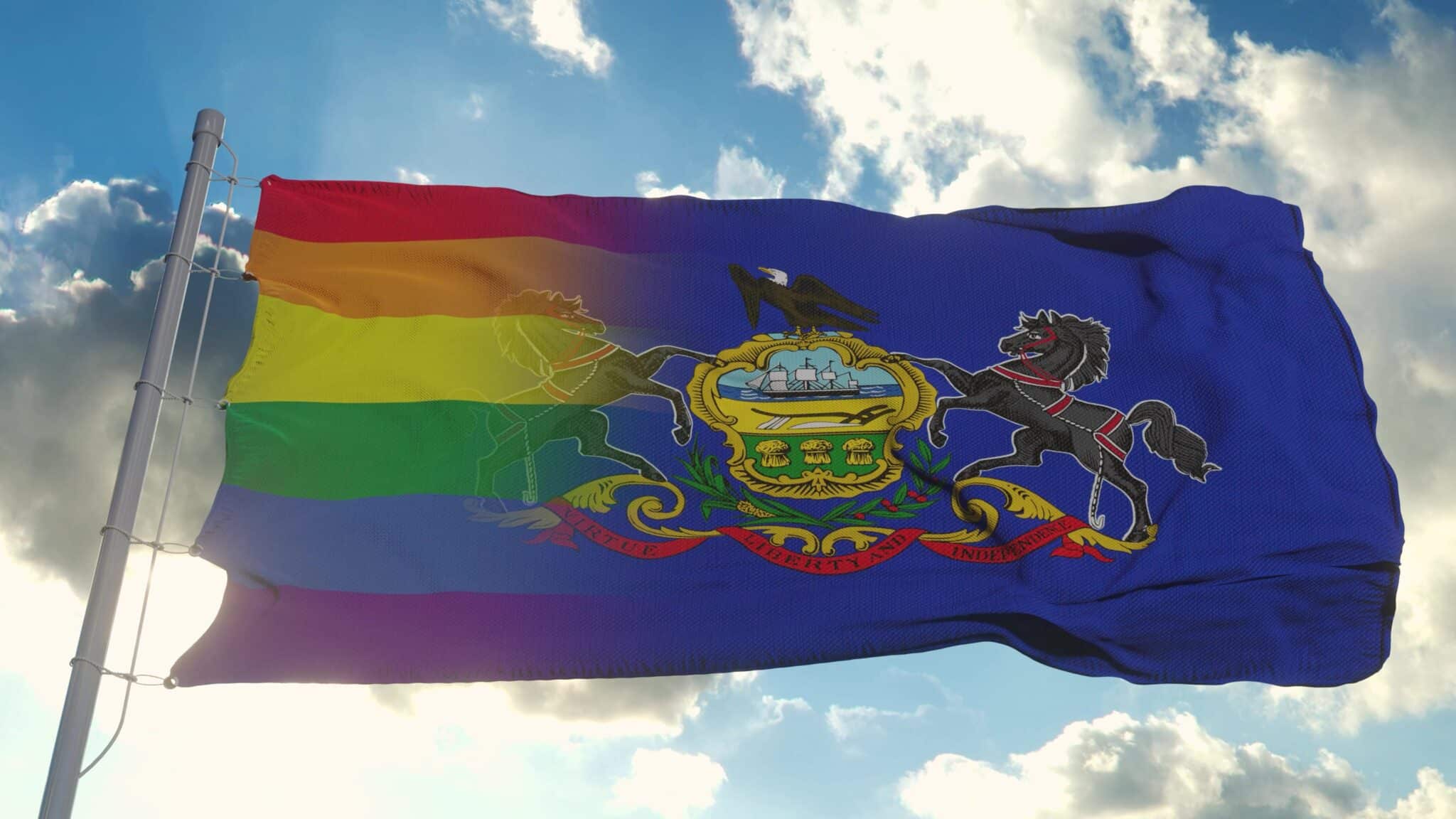The Pennsylvania House of Representatives made history on Tuesday when the legislative body voted to approve a bill that would enshrine nondiscrimination protections for LGBTQ people into state law. House Bill 300, also known as the Fairness Act, would amend the state’s existing anti-discrimination law – the Pennsylvania Human Relations Act – to prohibit discrimination in housing, employment, and public accommodations on the basis of sexual orientation and gender identity or expression.
In a press conference on Tuesday, Rep. Malcolm Kenyatta, one of the bill’s co-sponsors, called the vote and the bill’s passage “historic.” This is the first time a version of this bill has made it through the House since it was introduced in 1976. The Fairness Act passed on a 102-98 margin, with two Republicans voting in favor of the bill and only one Democrat voting in opposition. The legislation now heads to the Senate.
“This is an important step forward for civil rights in Pennsylvania,” Kevin Levy, the chair of the Philadelphia LGBTQ Bar Association, said in a statement to the Bucks County Beacon. “The Pennsylvania Fairness Act will help to ensure that queer people across the Commonwealth of Pennsylvania are treated with the same dignity and respect as everyone else and have vital legal protections to vindicate their rights under state law.”
While the Independent Regulatory Review Commission approved a regulatory change to the PHRC late last year expanding the definition of sex-based discrimination to include sexual orientation and gender identity, anti-LGBTQ discrimination is not explicity outlawed in Pennsylvania. And although the Supreme Court case Bostock v. Clayton County extended workplace nondiscrimination protections to include LGBTQ people on a federal level, these protections are not codified into Pennsylvania state law, nor do they apply to housing and public accommodations. According to the Movement Advancement Project, Pennsylvania is the only state in the northeast without nondiscrimination protections for LGBTQ people.
PFLAG Bucks County leaders Rachel Fitzpatrick and Jessica Dziobeck told the Bucks County Beacon that the protections offered in the Fairness Act are “crucial” and “long overdue.” “Without these specific added protections on gender identity and sexual orientation, the LGBTQ community will continue to face discrimination and injustice,” Dziobeck and Fitzpatrick said in an email. “These are basic rights that everyone should have.”

Getting the bill through the GOP-controlled Senate, however, may prove to be more difficult. If the rhetoric used by some House Republicans on Tuesday is any indication of the party’s perspective on the bill, there may not be enough votes to pass it. Conservative lawmakers were quite vocal about their opposition to the Fairness Act on the House floor shortly before the vote. Rep. Stephanie Borowicz mischaracterized the bill as an infringement on women’s rights and religious freedom, calling it “sick and evil.” Similarly, Rep. Bryan Cutler also claimed that the Fairness Act would allow for religious discrimination.
In response to these micharacterizations, Rep. Jessica Benham, one of the bill’s co-sponsors, emphasized the importance of making sure every Pennsylvanian is treated fairly and equally under the law. “This bill is as simple as it is substantive,” Benham said during a news conference following the bill’s passage. “It only extends protections that are already granted to individuals on the basis of other categories. And it creates no new rights.”
But the existing rights it would extend to queer and trans people in the state are much-needed, proponents say. According to a 2021 report from the Williams Institute, 490,000 LGBTQ people in Pennyslvania are vulnerable to discrimination and harassment, including housing and employment discrimination.
“While this vote is another step in the process, it’s a significant step,” Elizabeth Randol, the legislative director of the ACLU of Pennsylvania, said in a statement to the Bucks County Beacon. “LGBTQ Pennsylvanians who experience discrimination have recourse today, but enacting this bill will strengthen that protection.”







